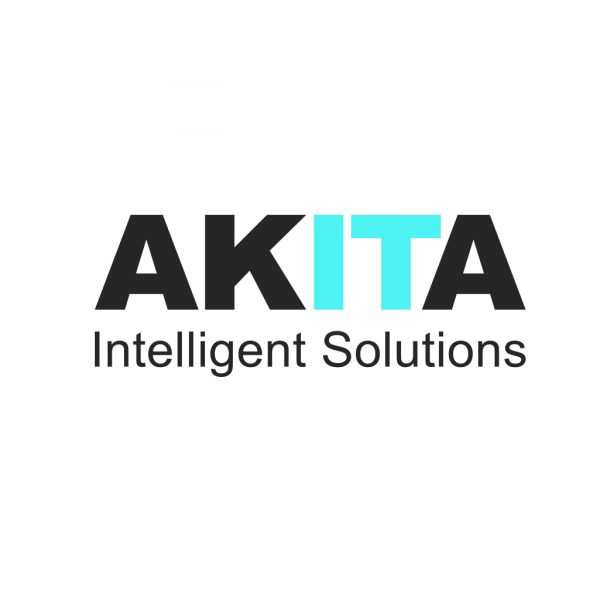Choosing the right financial management software is crucial for the success and growth of any organisation.
Two popular options that often come into consideration are Microsoft Dynamics 365 Business Central vs QuickBooks. While both solutions offer valuable features, each puts forward different benefits for varying organisational situations. We compare and contrast various aspects to make choosing between the two an easier decision.
Pricing: Value for Your Investment
When it comes to pricing, both Microsoft Dynamics 365 Business Central and QuickBooks offer subscription-based models. However, Business Central provides a broader range of functionalities within its tiered pricing structure. While QuickBooks may appear more affordable at first glance, its limited features and lack of scalability can result in hidden costs as a business grows or demands more advanced capabilities.
Scalability: Growing With Your Business
If you're looking at Microsoft Dynamics 365 Business Central vs QuickBooks, you're likely considering which solution will work for you long term. Business Central is designed to support mid-sized to large businesses, handling increasing operational complexity and transaction volumes with ease. Its ability to manage multi-entity, multi-currency, and multi-location operations makes it suitable for organisations with ambitious growth plans.
QuickBooks caters more to small to mid-sized businesses and can struggle as business needs become more advanced. So if your company aims to scale, adopting Business Central early ensures your finance platform won’t become a barrier to future progress.
Integration Capabilities: Power Of The Microsoft Ecosystem
Business Central leverages seamless integration with Microsoft 365 applications including Outlook, Teams, Power BI, and Power Apps. These connections create a unified ecosystem that supports greater productivity and data visibility. It also integrates with a wide range of third-party tools, supporting connected workflows across departments.
QuickBooks, while offering some integration options, does not match the depth or strategic alignment offered by Microsoft’s solution stack.
Audit Trails and Compliance
As your organisation grows, so does the importance of transparency and accountability in your financial operations. Business Central includes comprehensive audit trail features and strong role-based access controls, helping you to maintain data integrity and comply with regulatory standards.
QuickBooks offers more basic audit tracking, which may not be sufficient for industries with stringent compliance requirements.
Multi-Currency and Multi-Language Support
Expanding businesses often need to manage international operations. Business Central simplifies this with robust multi-currency functionality and support for:
- Automated exchange rate handling
- Multi-currency bank accounts and ledgers
- Localised reporting for global operations
It also provides multi-language support, allowing users to work in their preferred language. QuickBooks offers only limited multi-currency and language features, which may restrict international growth.
Advanced Reporting and Analytics
Business Central delivers powerful built-in reporting tools, giving users access to real-time financial insights, configurable dashboards, and performance indicators. Through integration with Power BI, it also supports advanced visualisation and analysis of business data.
QuickBooks includes basic reports and dashboards, but its analytics capabilities are far less advanced unless paired with third-party tools—many of which lack the integration and usability of Microsoft’s ecosystem.
User Interface: Robust and User-Friendly
Business Central strikes a strong balance between capability and usability. Its modern, responsive interface enables users to access critical information efficiently, with customisable views and task-focused navigation.
While QuickBooks is recognised for ease of use, it doesn’t offer the same level of depth, configurability, or user role management found in Business Central.

CRM Functionality: Complete Business Management Solution
One of Business Central’s standout advantages is its integrated CRM capability. Businesses can manage:
- Customer relationships
- Sales pipelines
- Marketing activities
— all within the same system. QuickBooks only offers limited customer data tracking and lacks the strategic sales and service management tools that Business Central includes as standard.
Business Central vs QuickBooks Customisation
Every organisation operates differently, and finance systems must reflect those differences. Business Central offers deep customisation, allowing you to configure fields, automate workflows, and implement tailored business rules without significant development overhead.
QuickBooks provides some level of modification, but its customisation capabilities are more constrained, especially when adapting to complex or niche business models.
Customer Support: A Safety Net for Success
Microsoft’s reputation for comprehensive support extends to Business Central. Users benefit from rich documentation, global knowledge bases, and access to expert partners such as Akita. Whether it’s deployment, troubleshooting, or optimisation, there’s reliable assistance available throughout the product lifecycle.
QuickBooks offers support, but the depth and breadth of service do not compare to that of Microsoft or its partner network. For businesses seeking a dependable support framework, Business Central stands out.
Business Central vs QuickBooks: Why Business Central May Be the Better Choice for You
When reviewing Business Central vs QuickBooks, it’s clear that the right platform will depend on your business ambitions.
QuickBooks continues to serve many small businesses well; however, Microsoft Dynamics 365 Business Central is the stronger proposition for organisations that expect growth, operate across multiple functions, or need deeper insights into their operations.
Its competitive pricing, scalability, integrations, built-in CRM, customisation options, and enterprise-grade support make Business Central a strategic long-term choice. That’s why many companies are choosing to migrate from QuickBooks to Business Central.
If you're serious about operational efficiency, future readiness, and driving smarter business decisions, investing in Business Central positions your business to scale confidently.
Akita Intelligent Solutions is an experienced developer of Microsoft Dynamics 365 Business Central. Find out more about a Microsoft ERP solution:





